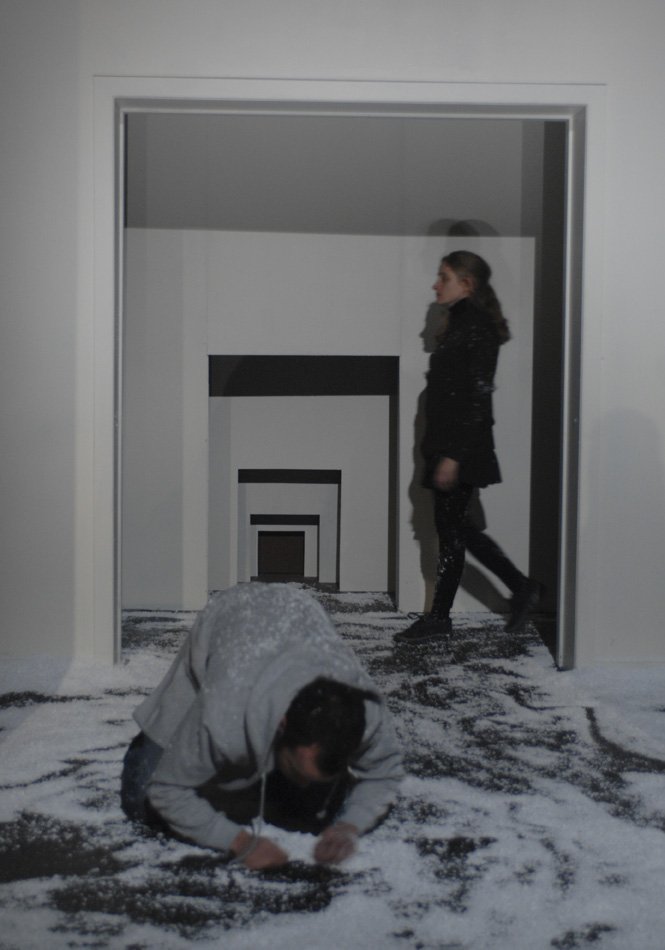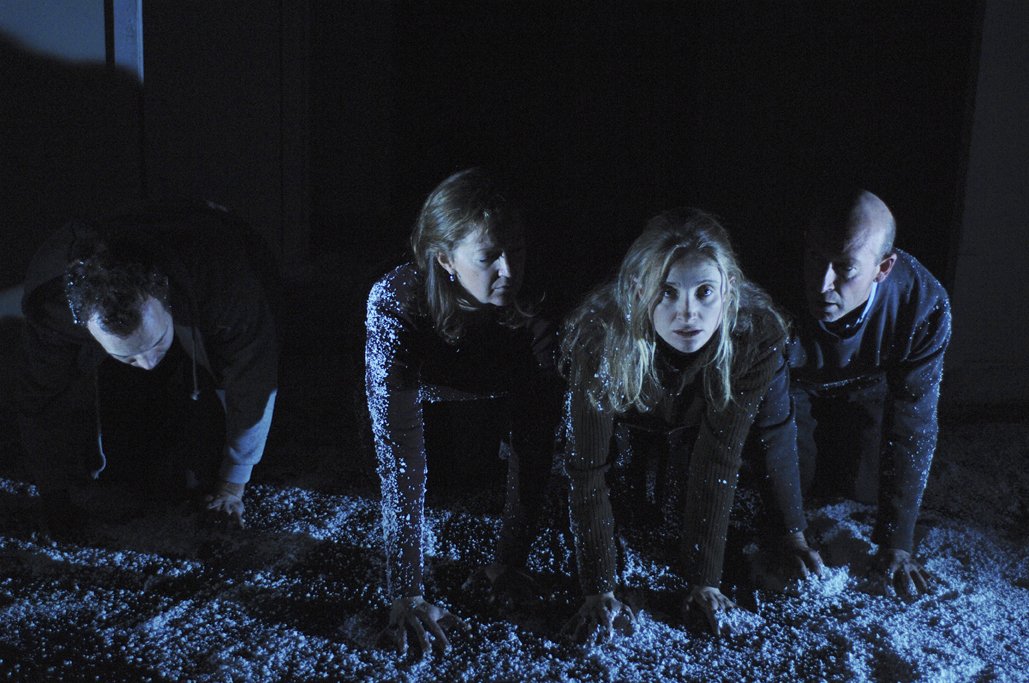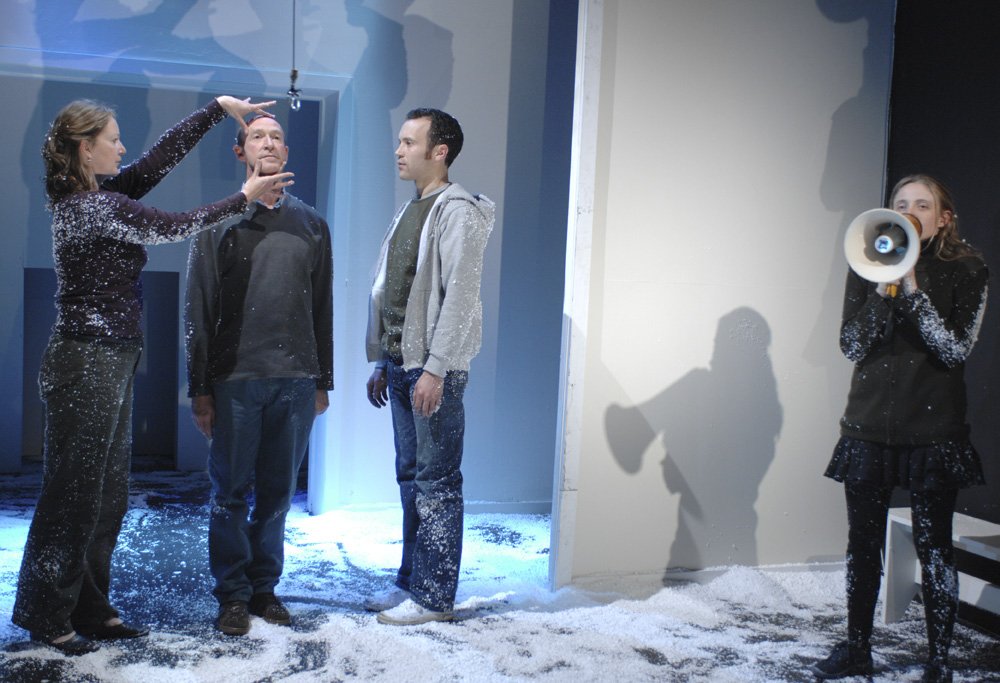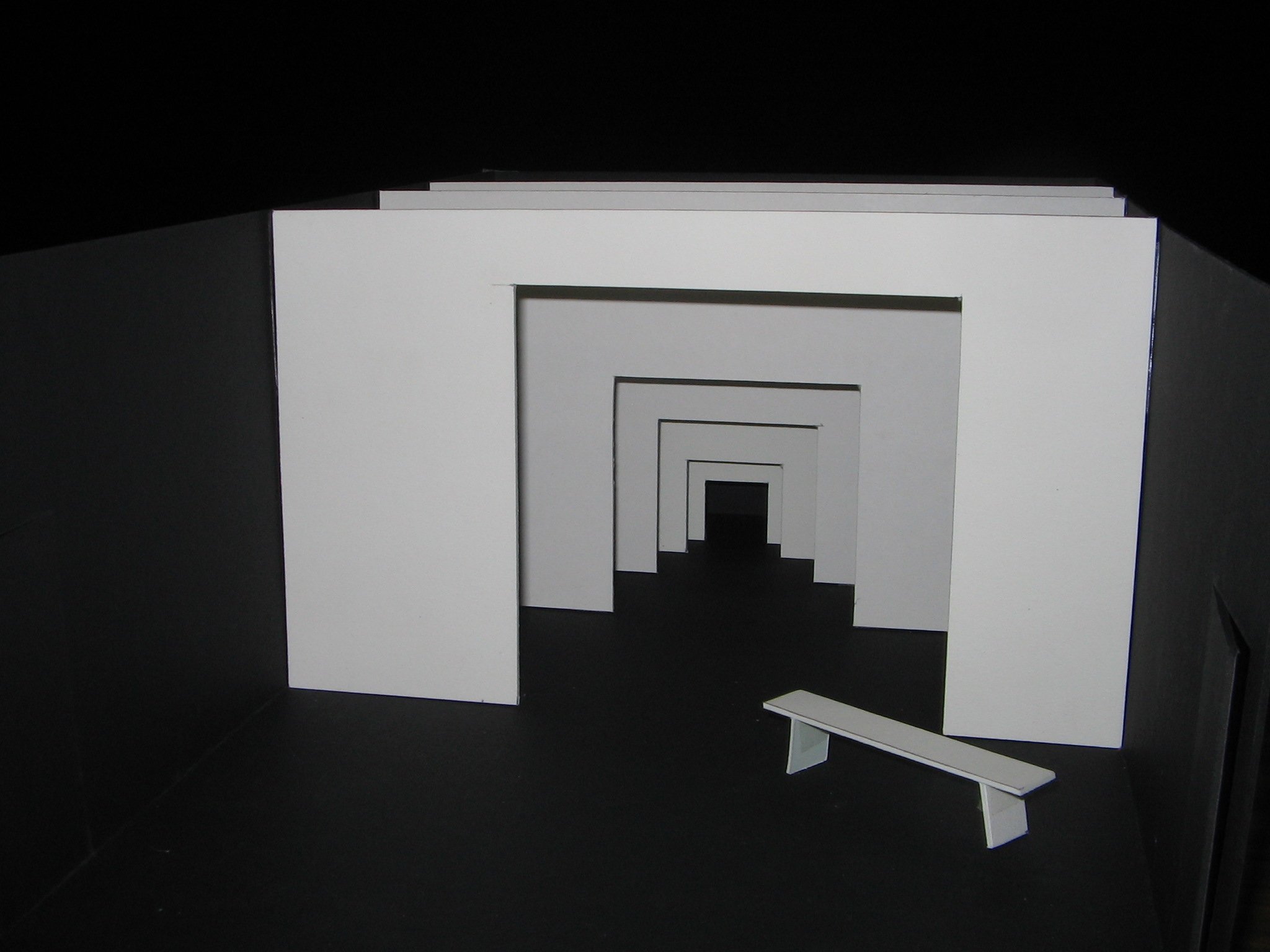
4.48
Psychosis
by Sarah Kane
27 July - 25 August 2007
Red Stitch, Melbourne AU

Director’s notes: ‘A solo symphony’ – 4.48 Psychosis
Sarah Kane spoke of her desire to make what she called an ‘experiential’ theatre: one that was not about the spectator (for want of a better term) sitting back and ‘speculating’ on the implications of a certain scenario from a distance, but rather experiencing that scenario viscerally and emotionally, as well as intellectually. She hoped that, by putting people through an intense experience in the theatre, she could perhaps ‘change things.’
For 4.48 Psychosis, her last play before her suicide, she has not, in my opinion, in any way diverged from this aim. The experience of suicidal anguish in this work asks of the audience an immersion in a world that functions with its own logic and order and understanding of time, rather than socially marked time – which, in the end is, of course, an artificial construct designed to keep society functioning in sync.
The playwright Edward Bond, a great supporter of Kane’s work, has suggested that there is a ‘wider political dimension’ to her writing and, while many have interpreted the last work as a narrowing of focus onto the self that precludes a social or political concern, I feel strongly that Kane has not retreated from this wider dimension. A thematic triangle scaffolds the play, joining the dots between sanity, writing and religion and questioning the value of ‘sanity’ if its product is the current state of the world, in which amongst the comfortable there is a selective numbing against its horrors.
Bond writes about ‘social madness,’ asking ‘how is it that most of us appear to be sane but we live in societies that are mad?’ Kane’s last play, though clearly motivated by a deeply-felt personal anguish, opens up this question in a vibrant, theatrical form that leaves behind a more traditional dramatic model that might allow us to ‘speculate’ and see this world as belonging only to its tragic playwright. Through the merging of streams of consciousness, poetic devices, the palimpsest of dialogue, the ‘voice’ at the heart of the play asks to be multiple, fractured, shared in a ‘solo symphony.’ Denying us the cathartic release of tragedy and the comforting sense that at the end all is well in the world and the social structure is soundly back in place, the play asks questions of each of us and the way we live – and that is its wider social legacy.
DIRECTOR
Alyson Campbell
PERFORMERS
Olivia Connolly, Richard Bligh, Tom Davies, Suzette Williams
SET AND COSTUME DESIGNER
Peter Mumford
LIGHTING DESIGNER
Richard Whitehouse
SOUND DESIGNER
Gus MacMillan
PHOTOGRAPHY
Jodie Hutchinson

‘[The] predisposition to poetic, rather than emotive interpolation or expressive angst serves Campbell's direction well […] It is simultaneously challenging, confronting and awesome.
Memorable, nuanced performances. Must see for newcomers to Kane and Kane aficionados alike.’
Paul Andrew, Australian Stage
‘[A] clear-eyed and confident production […] you will be hard pressed to find a better-realised production of this play’
Chris Boyd, Herald Sun










